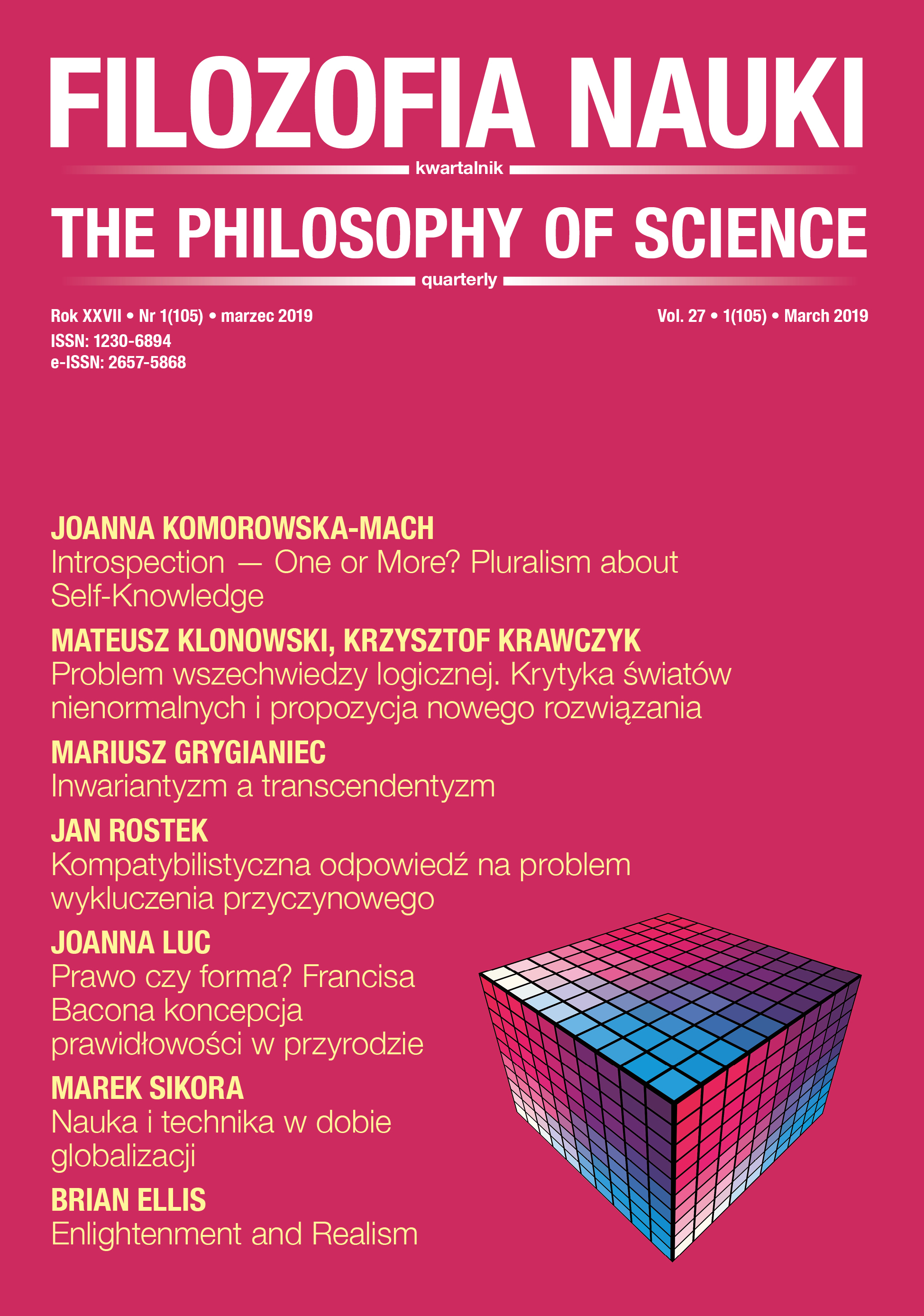Enlightenment and Realism
DOI:
https://doi.org/10.14394/filnau.2019.0007Słowa kluczowe:
Enlightenment, Steven Pinker,, social sciences, reverse application strategyAbstrakt
Steven Pinker’s book Enlightenment Now is a landmark achievement, if it is considered only as a review of the history of social progress in the world since the mid-eighteenth century. Pinker demonstrates, beyond reasonable doubt, that great progress has been made on almost every front. But, it is argued, much of this progress has been bought at the cost of social progress in First World countries. For it has been achieved by reverse engineering the social structures to make them resemble more closely the neoclassical model of a nation’s economy — a model that contains neither a government nor any socially-funded social services. The reviewer argues that the practice of changing the social facts, in order to make them fit a given theoretical model better, is contrary to scientific method, and that we need a new enlightenment now to develop scientifically more realistic theories in the social sciences.
Bibliografia
Ellis B. D. (2009), The Metaphysics of Scientific Realism, Durham: Acumen Publishing. https://doi.org/10.1017/UPO9781844654529
Ellis B. D. (2012), Social Humanism: A New Metaphysics. London-New York: Routledge. https://doi.org/10.4324/9780203110980
Ellis B. D. (2017), Rationalism: A Critique of Pure Theory, Melbourne: Australian Scholarly Publishing.
Lanchester J. (2018), "After the Fall," London Review of Books 40(13), 3-8.
Pinker S. (2018), Enlightenment Now: The Case for Reason, Science, Humanism, and Progress, London: Allen Lane.



















 Filozofia Nauki | ISSN 1230-6894 | e-ISSN 2657-5868
Filozofia Nauki | ISSN 1230-6894 | e-ISSN 2657-5868